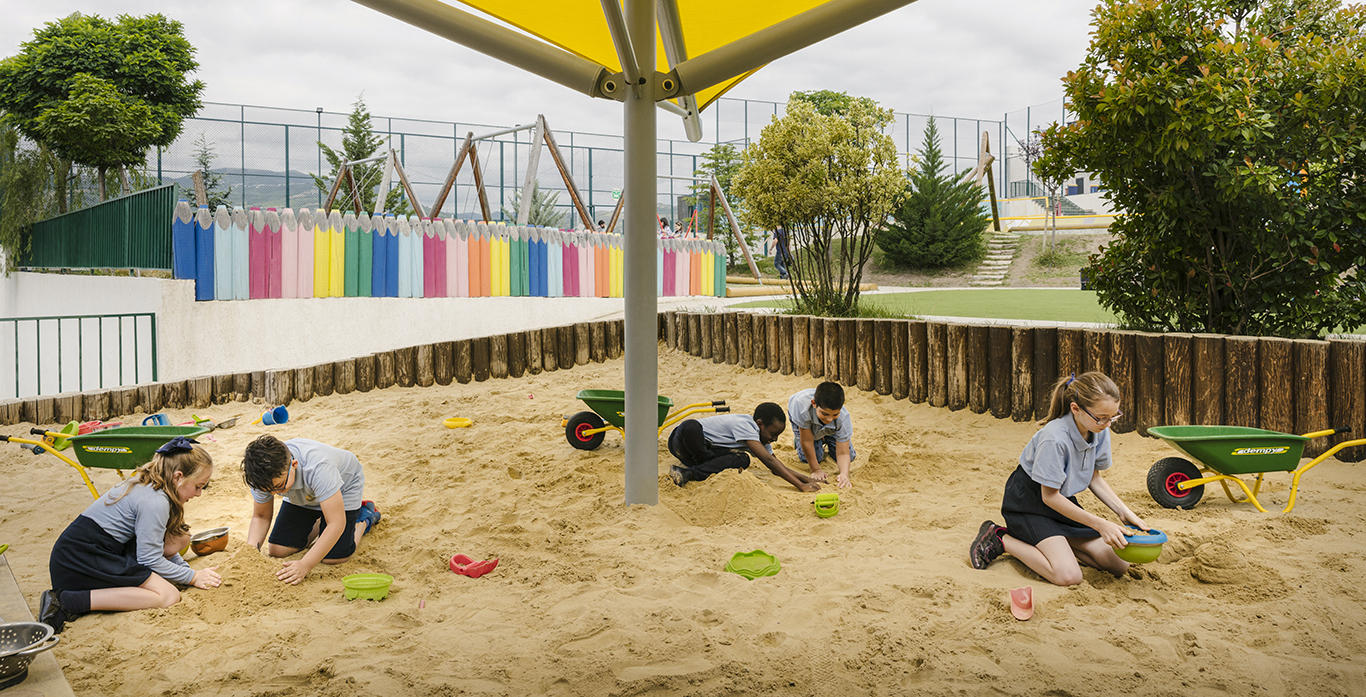CAMBRIDGE PRIMARY
Literacy
The Cambridge Primary English curriculum closely follows the National Curriculum and aims to develop learners’ confidence, creativity and intellectual engagement. It covers knowledge, skills and understanding in the three strands: Reading, Writing, and Speaking & Listening. Designed to be successful in any culture and to promote cross-cultural understanding, our English curriculum enables learners to acquire first language competency in English.
For more information on Cambridge Primary, please visit: cie.org.u
Abacus Mathematics
Abacus is a toolkit developed by experts and current practitioners for UK and international schools. It contains high-quality resources and tools for teachers and children, which develop in-depth understanding and playful enjoyment—both key to helping children reason mathematically. These materials are proven to enable all children to develop mastery and succeed in maths. Abacus aims to develop within students conceptual understanding, numerical fluency, problem-solving skills, and mathematical confidence.
INTERNATIONAL PRIMARY CURRICULUM (IPC)
The IPC is a comprehensive and creative curriculum with a clear process of learning and specific learning goals for every subject, international mindedness, and personal learning. The IPC ensures rigorous learning and makes all learning exciting, active, and meaningful. Children connect their learning to where they are living now, as well as from the perspective of other people in other countries through its global approach.
The IPC focuses on children’s learning through a combination of knowledge, skills, and understanding. The learning goals define what children will be expected to know, what they will be able to do, and the understanding they will develop as they move through school. The learning goals are divided into three areas:
- The subject goals: These cover the knowledge, skills, and understanding for each of the following subjects: Language Arts, Mathematics, Science, ICT, Technology, History, Geography, Music, Physical Education, Art, and Society.
- The personal goals: These underpin individual qualities and learning dispositions children will find essential in the 21st century, including personal goals for enquiry, resilience, morality, communication, thoughtfulness, cooperation, respect, and adaptability.
- The international goals: These include the development of a sense of a student’s own identity alongside an understanding of the identity of others; understanding the independence and interdependence of people, cultures, and countries; and a degree of focus on both the host and home country.
The IPC is divided into different age ranges called mileposts:
- Milepost 1: 5 to 7 years (Years 1 & 2)
- Milepost 2: 7 to 9 years (Years 3 & 4)
- Milepost 3: 9 to 12 years (Years 5 & 6)
Each Milepost has a wide range of exciting thematic units to choose from. There is a distinct learning process with every IPC unit, providing a structured approach to make sure that children’s learning experiences are as stimulating and rigorous as possible. Each theme is introduced through an Entry Point, which is designed to engage children in their learning, and finishes with a grand finale to celebrate all that has been achieved.
For more information on the IPC, please visit: Great Learning IPC

